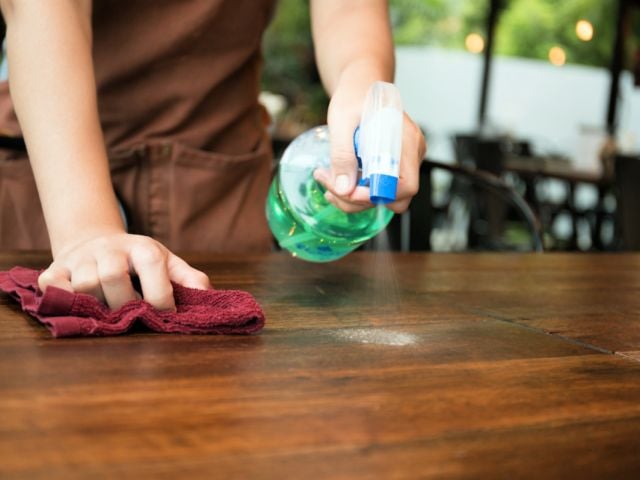
Every day, consumers are presented with choices about how we protect ourselves and those we love.
For the past 30 years, EWG has fought to make it easier for us to seize those opportunities.
For three decades, we’ve fought government dysfunction and corporate greed to remove thousands of chemicals from the food we eat, the water we drink and the lotions we wear. We speak up on behalf of individuals. We hold corporations accountable for what goes into our products, to protect the parents, the workers, the farmers, the caregivers and you.
What drives us
As a policy shop, EWG is driven by facts – research and scientific data – not emotion. But sometimes those facts outrage us, for instance, when we see environmental harms being perpetrated against us by big industrial polluters.
Back in 1993, when we started on this journey, we were just a policy shop. But we paid attention to issues other groups didn’t. Our first idea was to take a closer look at the farm bill to see who was benefiting from all the farm programs in the bill. We gathered all the records and compiled them into a searchable database, EWG’s Farm Subsidy Database.
What we learned changed forever how we think about American agriculture: In many cases, the people who benefitted were “city slickers” – millionaires in big cities, living far from their farms. (What hasn’t changed is that those same types of people are still benefiting from these programs.)
Even back then, we weren’t interested in talking about problems. We were interested in solving them.
Collecting and testing samples for pesticides
Next we set out to collect samples of baby food from all over the country and test them for pesticides, something that had never been done. The results were astonishing: Kids were being exposed to hundreds of different pesticides that were totally unsafe.
Looking back, we can trace a direct line between those tests we conducted and the change in federal pesticide law in 1995.
Those tests were a jumping-off point for further tests for all the chemicals polluting the environment, including our water. We collected 20 million records of drinking water quality, which no one had done before. The records showed us that 50 million people were drinking water polluted with illegal levels of chemicals. That led to the creation of the Tap Water Database.
‘Intimate and everyday’
“We wanted to make environmentalism intimate and everyday,” said EWG President and Co-founder Ken Cook, remembering the organization’s early days.
Then a light bulb went on. Instead of just testing food and water, why not test people to see what’s in their bodies?
Body burden
In 2005, we tested 10 babies’ umbilical cord blood and found hundreds of toxic chemicals. But if our bodies are so polluted, we asked ourselves, how did they get that way? We started reading ingredient labels.
And we realized we needed to combine our policy advocacy – long the backbone of our work – with a new way of reaching consumers. That’s when we decided to build our free online database of personal care products, Skin Deep®.
Nineteen years later, the database is used by tens of millions of people a year who want to know what’s in the lotion they use and the diaper cream they apply on their baby.
Our third-party verification program, EWG VERIFIED®, took the idea a step further. The EWG VERIFIED mark empowers consumers to identify products that meet EWG’s rigorous standards for ingredient safety and the highest criteria of transparency. Consumers can now confidently choose the healthiest options to protect themselves and their families from harmful chemical exposures.
More urgent than ever
In the past decade, the need for our work has become more urgent than ever.
We’re proud of our groundbreaking work on the “forever chemicals” known as PFAS. Keeping up the drumbeat about these ubiquitous, harmful chemicals is finally paying off, after decades of research and advocacy. We mapped the PFAS pollution that affects an estimated 200 million Americans and linked tap water contaminants to an increased risk of cancer. We exposed corporate polluters’ decadeslong coverup of PFAS toxicity.
These compounds pervade our air and water, not just the food supply and the personal care products we use everyday, and they’re a problem we can’t shop our way out of. Cleanup, once it’s addressed, is a massive undertaking, and the industries that caused the PFAS pollution need to be held responsible for it. We’re doing what we can to hold them accountable.
We used these same capabilities to map the out-of-control growth of factory farming, shining a light on its devastating impact on water quality.
To address these problems, Washington needs to step up. Earlier this year, for the first time since 1938, an update to cosmetics law gave regulators new, critical enforcement powers.
And in California, we sponsored or cosponsored legislation that, if passed, will ban some of the most harmful chemicals from our personal care products, cleaners and food. And that’s huge, because as California goes, so goes the nation – manufacturers will soon be forced to make these healthier options for the rest of the country, too.
Today we’re excited to celebrate the past 30 years of environmental progress. It’s satisfying to take stock of where we’ve been in the decades since we set out on this journey. But there's still plenty of work to do as we continue making the case for a better world – and we're embracing the challenges ahead with enthusiasm.



